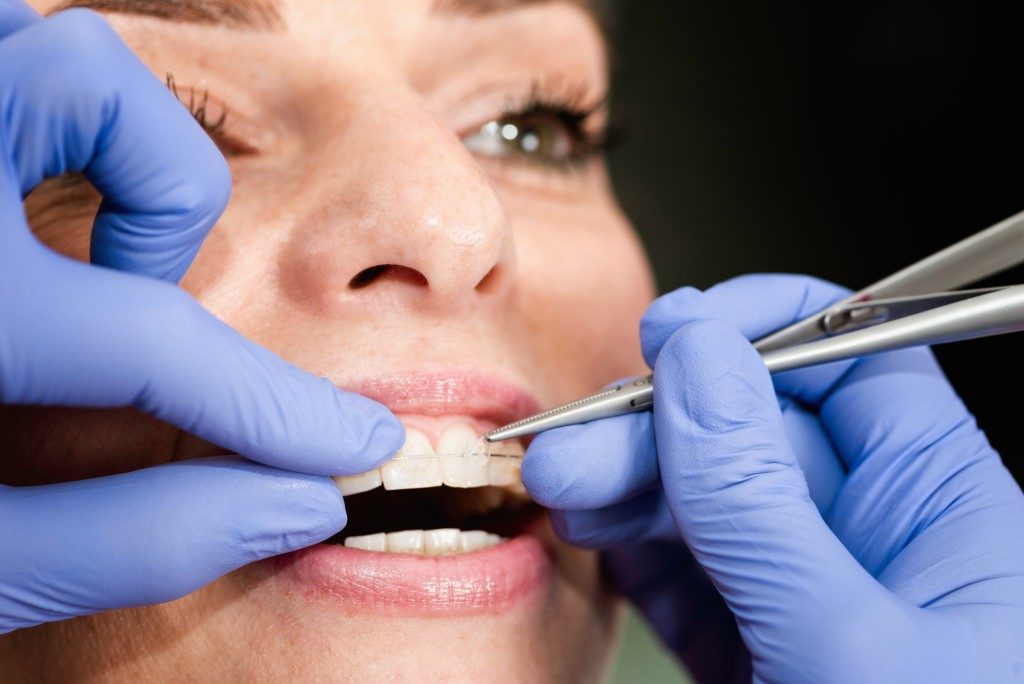It’s what most teens frequently ask on the dentist’s chair: will the dental braces hurt? It’s a valid question — it does pay to know before you go. The truth is, orthodontic treatments can bring a little discomfort. Here are the times you can expect some soreness on your braces and the ways you can relieve the pain:
When you first get them
To know where exactly pain comes from, you should first understand how dentists put braces on to your mouth. In the actual procedure, you’ll only experience a slight twinge, as the dentist places bands around your back molars. After that, they will use a special glue to cement the bracket on to the teeth. The wires will be attached to the brackets. With these appliances in your mouth secured, this is where the pain starts. The wires and brackets apply force on the teeth to cause them to shift through the soft tissue of the gums. Sometimes, you’ll feel that the wires are pricking on to the insides of the cheeks or that the brackets seem to have pointed edges. It will hurt more when you eat. That’s why dentists from Canton, orthodontics practitioners, highly recommend a soft diet at the first two weeks after the procedure. Try to go for mashed potatoes, mac and cheese, soup, and frozen yogurt during this period. As you get used to the braces though, the pain will go away.
When you get them adjusted
Orthodontic treatment requires regular appointments with your dentist. As your teeth shift, the force the braces apply tend to decrease and thus become less effective. The dentist then should adjust the wires, springs, and bands to further increase the pressure applied on the teeth. This again could cause pain, but don’t worry, it won’t be as bad as the first procedure. You can use topical, oral anesthetic on the areas that hurt to manage the pain. Note though that most of these products don’t taste good, so you might experience discomfort there. You may also use an ice pack and put it on the outside of your cheeks. Keep it there for a good 10 minutes to reduce the swelling and soreness. Don’t go beyond the recommended duration as it might only cause tissue damage. Of course, the soft diet also helps.
When you have them removed
Most dental procedures bring some discomfort, and the removal of wires and bands isn’t an exception. The dentist will use different pliers to unfasten the appliances, so you would feel a little pressure, but they’re not too painful. The orthodontist will also wipe off the cement that attached the brackets, and the scraping can make your teeth sensitive. After the procedure, dentists recommend wearing retainers, removable mouth appliances that keep the teeth from moving out of correct alignment. Quite similar to braces, you would feel uneasy having it. But as you get used to it, the pain will lessen.
Worth the Pain
 Yes, there’s a bit of discomfort when you’re on orthodontic treatment — but the rewards of healthy teeth, in the end, outweigh such. Consult your dentist how you can manage the pain symptoms and make your journey less stressful.
Yes, there’s a bit of discomfort when you’re on orthodontic treatment — but the rewards of healthy teeth, in the end, outweigh such. Consult your dentist how you can manage the pain symptoms and make your journey less stressful.

